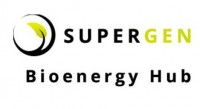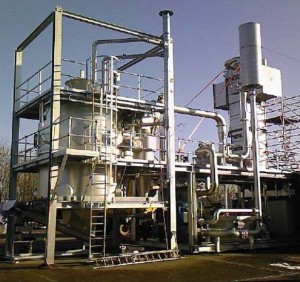 The SUPERGEN Bioenergy Hub is a new research hub bringing together the UK’s academic, industrial and policy communities to accelerate the deployment of sustainable bioenergy.
The SUPERGEN Bioenergy Hub is a new research hub bringing together the UK’s academic, industrial and policy communities to accelerate the deployment of sustainable bioenergy.
The hub is a collaborative initiative involving six academic institutions and a growing number of industry partners. It’s led by Dr. Patricia Thornley from the Tyndall Centre for Climate Change Research at the University of Manchester, and steered by an advisory board with members drawn from the UK’s bioenergy industry and policymakers.
The hub is funded by the Engineering and Physical Sciences Research Council. It is part of the council’s ‘SUPERGEN’ programme which supports a number of consortia addressing issues in sustainable power generation and supply.
The hub’s aims are to:
- Act as a focal point for sharing and dissemination of scientific knowledge and engineering understanding to facilitate near-term deployment of technologies
- Investigate and develop new approaches for dealing with the very significant engineering challenges associated with deployment of more novel technologies
- Improve scientific understanding of the fundamental aspects of different forms of biomass and its conversion
- Take a whole-systems perspective to comprehensively evaluate the potential of future technology options
- Adopt an interdisciplinary approach to look beyond the engineering and technical aspects of bioenergy and ensure adequate consideration of the impacts on ecosystems, social responses to technology deployment and the economic context of policy development
The hub’s activities include directly funding research projects addressing key challenges in bioenergy in addition to networking and information sharing activities.
Research projects supported by the SUPERGEN Bioenergy Hub
Two projects will focus on reducing emissions from biomass combustion. One of these will involve practical measurement work on real boilers, trying to identify cost effective methods of reducing particulates and other atmospheric pollutants at small scale. Additionally a fundamental scientific study will focus on identifying key markers for emissions from fuel analyses.
There is significant interest in substituting natural gas in the national network with bio-derived gas. This is already being trialled via anaerobic digestion routes, which can produce a close match to the natural gas composition, but generally uses feedstocks such as slurry. A research project will look at alternative routes to producing a natural gas substitute from other feedstocks, including wood and establish if the environmental and economic balances are worth pursuing when the whole life-cycle is taken into account.
Many biomass supply chains are long and complex, with multiple processing stages and the extent to which material is lost (e.g. in drying or storage) is poorly understood. One of the hub’s projects will focus on identifying the most significant losses along key supply chains, quantifying their impact and proposing measures to mitigate these.
It is essential to ensure that bioenergy systems actually deliver real greenhouse gas reductions. However, there are many stages in some supply chains where knowledge of potential greenhouse gas impacts is limited making it difficult in some cases to be confident that substantial reductions are being achieved. Hence, a project will investigate key sources of uncertainty and their potential greenhouse gas significance, allowing producers and users to focus on improving these to maximize greenhouse gas savings.
Turning biomass into a gas can increase the efficiency and improve the environmental impact of electricity and heat production as well as providing routes to transport fuel and chemical production. Research on whole systems engineering integration of gasifiers will be carried out in close collaboration with industry to develop feasible and robust processing schemes.
A biomass gassifier at the University of Newcastle
There is increasing interest in heating or torrefaction of biomass to improve its physical characteristics during handling. A research project will assess the economic and environmental benefits of this to support decision-making in supply chains.
If the carbon dioxide emissions produced when burning biomass can be captured and stored it could be possible to deliver energy systems with not just low, but actually negative greenhouse gas emissions i.e. where carbon dioxide is removed from the atmosphere while producing energy. Performance validation of key steps in these schemes will be carried out in conjunction with the CCS UK Centre hub.
Turning biomass into transport fuels is a significant research challenge as substantial upgrading of bioliquids are required to meet biofuel specifications. One way of stepping towards that objective is to produce bio-oil by pyrolysis and upgrade that only to the minimum extent required to allow it to be mixed with mineral oil in a conventional refinery. New approaches to this will be evaluated experimentally to establish the feasibility and potential greenhouse gas reductions.
There are many different pathways from woody biomass to biofuels, some of which are only just emerging and it makes sense to focus research effort on those most likely to deliver significant and cost effective greenhouse gas reductions. Whole systems analysis of novel biofuel technologies will be carried out to screen for the most promising technology options.
Additional projects are in development which will look at using micro-algae for shipping fuel, biochar and public perceptions of bioenergy sustainability.
Networking and Information Sharing
The hub has set up a website www.supergen-bioenergy.net, and will be issuing regular newsletters – we are also on Twitter. We will be updating the website regularly with findings from the hub’s research as well as news items from partners and events related to bioenergy.
We are holding regular meetings for researchers to meet and share findings as well as organising presentations to policymakers to update them on research, and expert workshops to bring together existing knowledge. We will have a stand at the 21st European Biomass Conference and Exhibition in Copenhagen 3-7 June, so please come to see us there.
This post was written by Bea Jefferson, Manchester University.



